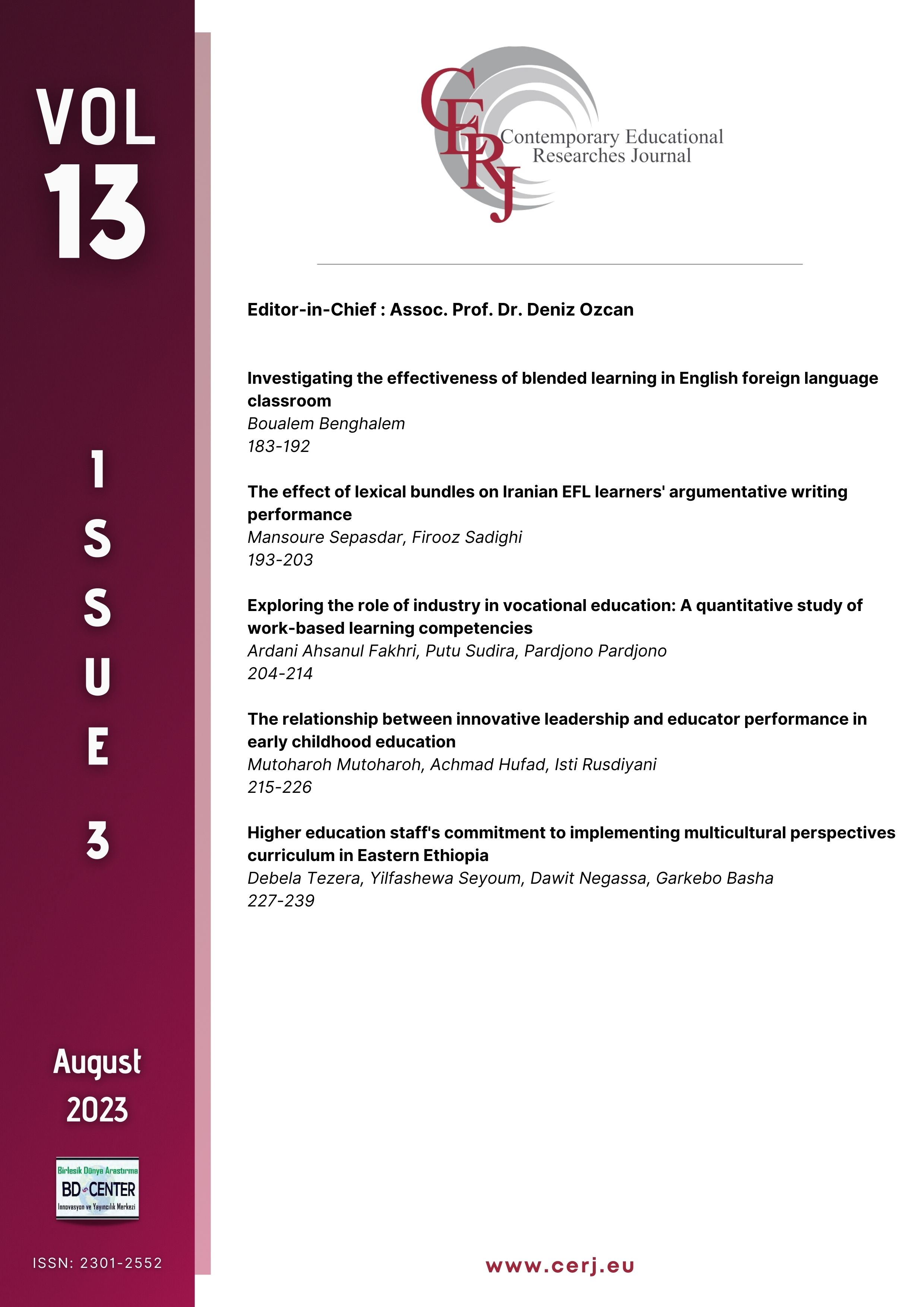Higher education staff's commitment to implementing multicultural perspectives curriculum in Eastern Ethiopia
Main Article Content
Abstract
This inquiry sought to determine academic staff’s commitment to implementing curriculum from the perspective of multiculturalism in Eastern Ethiopian Higher Education. A descriptive survey research design was employed. A sample consisting of 151 academic staff selected using a simple random sampling technique was used. Data was collected through a self-administered questionnaire and analyzed using descriptive and inferential statistics. The study results revealed the implementation of a multicultural curriculum, the commitment of academic staff was found at a low level. There is no mean difference between males and females in implementing the multicultural curriculum. Based on the findings it is concluded that if academic staff were hard-working, committed, appreciated, and respected diversity, embraced a positive attitude, used culturally responsive pedagogy, and used strategies properly, the execution of the philosophy curriculum would have been ensured. Therefore, recommendations are forwarded to concerned stakeholders.
Keywords: Commitment; curriculum; higher education; multiculturalism; multicultural perspectives.
Downloads
Article Details

This work is licensed under a Creative Commons Attribution-NonCommercial-NoDerivatives 4.0 International License.
Authors who publish with this journal agree to the following terms:
- Authors retain copyright and grant the journal right of first publication with the work simultaneously licensed under a Creative Commons Attribution License that allows others to share the work with an acknowledgement of the work's authorship and initial publication in this journal.
- Authors are able to enter into separate, additional contractual arrangements for the non-exclusive distribution of the journal's published version of the work (e.g., post it to an institutional repository or publish it in a book), with an acknowledgement of its initial publication in this journal.
- Authors are permitted and encouraged to post their work online (e.g., in institutional repositories or on their website) prior to and during the submission process, as it can lead to productive exchanges, as well as earlier and greater citation of published work (See The Effect of Open Access).
